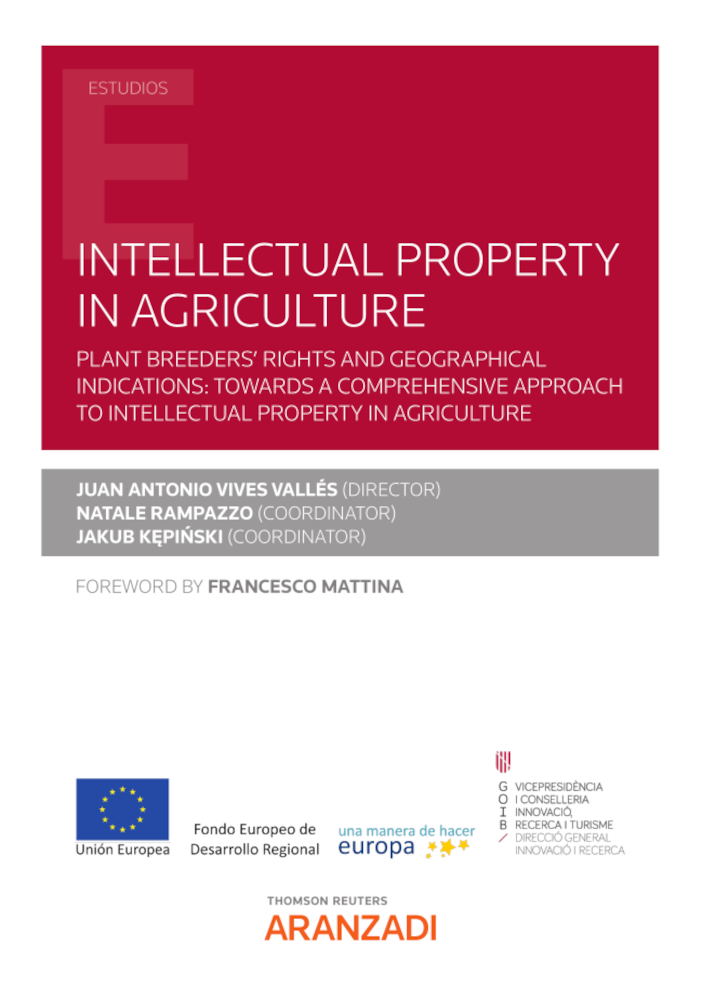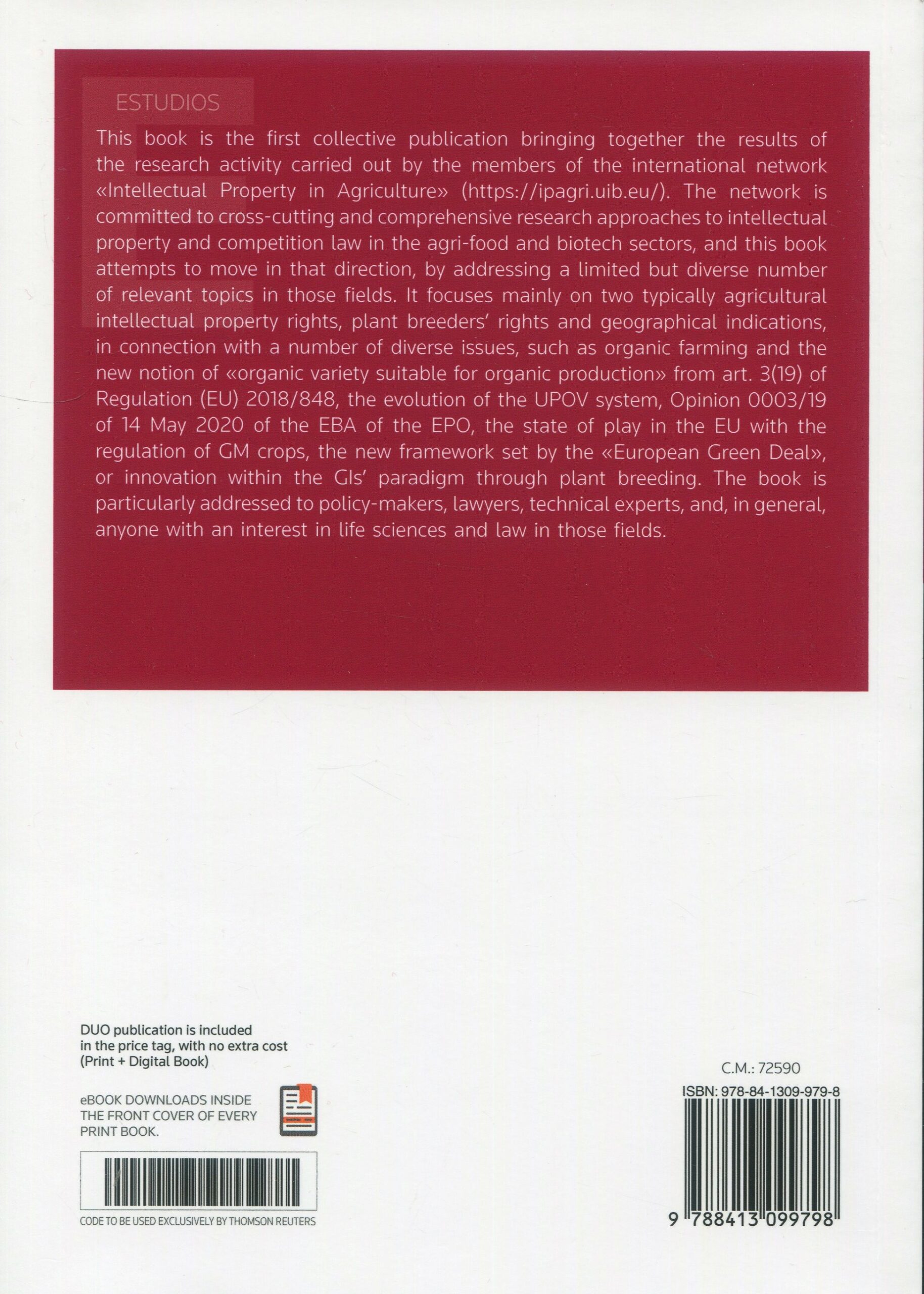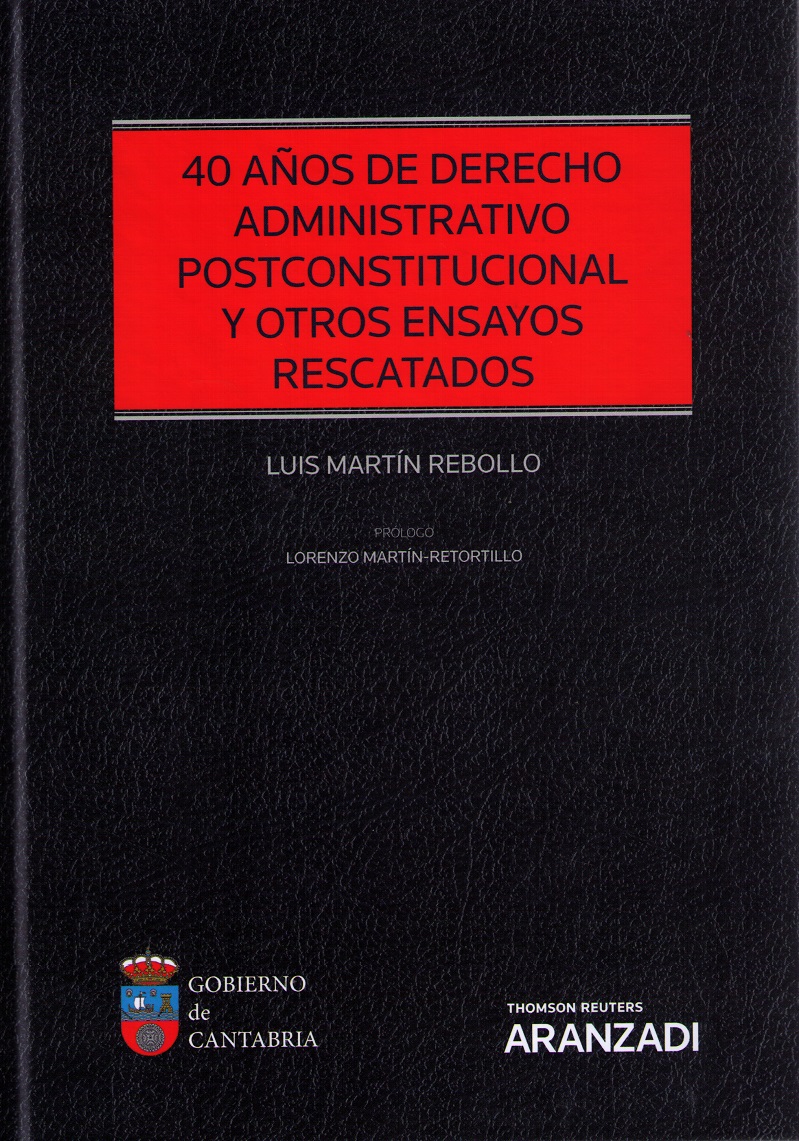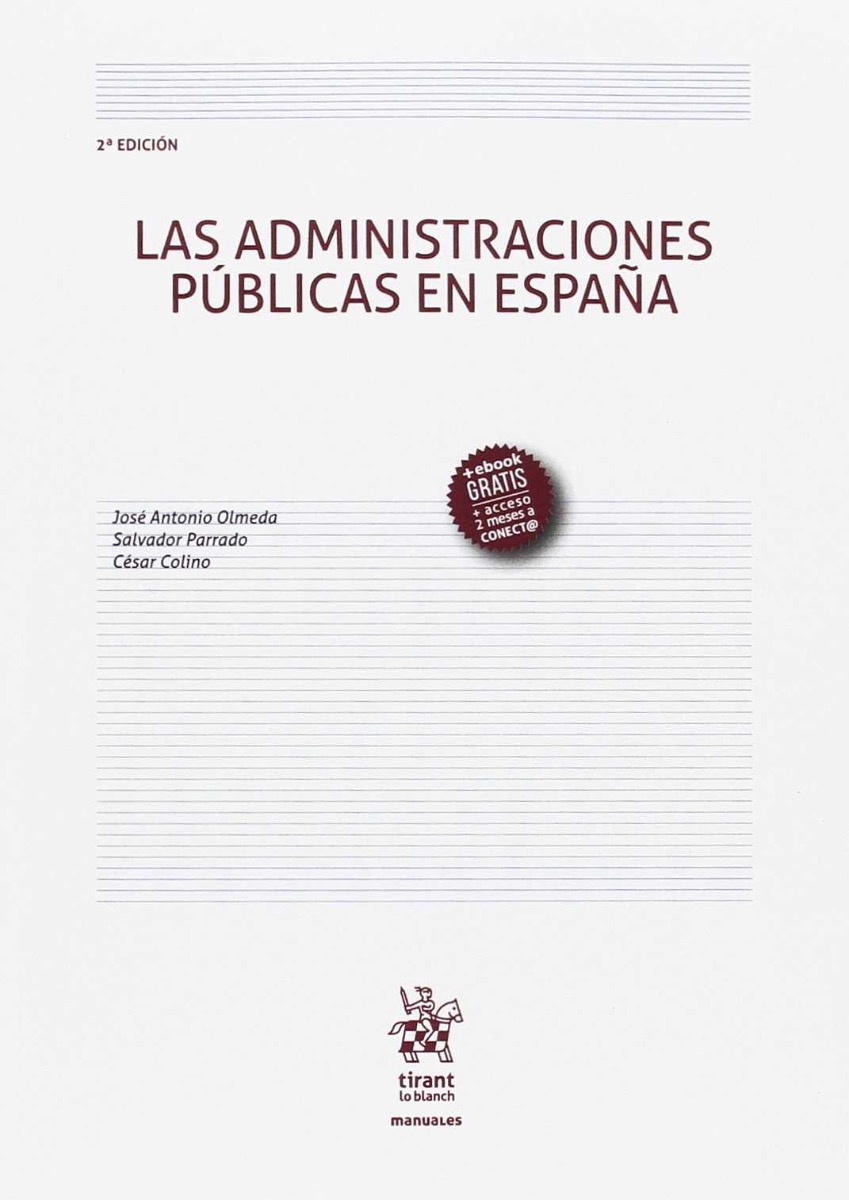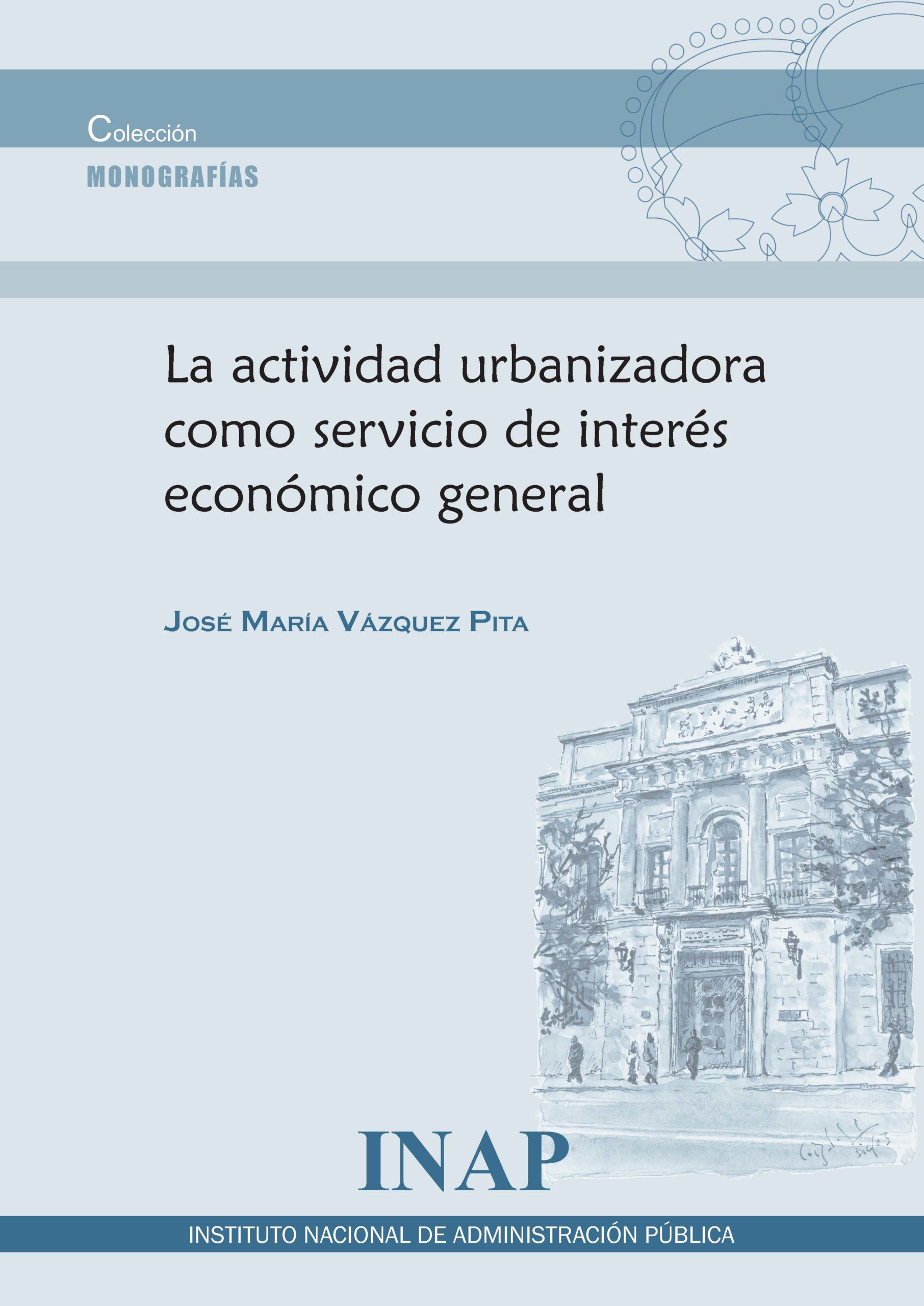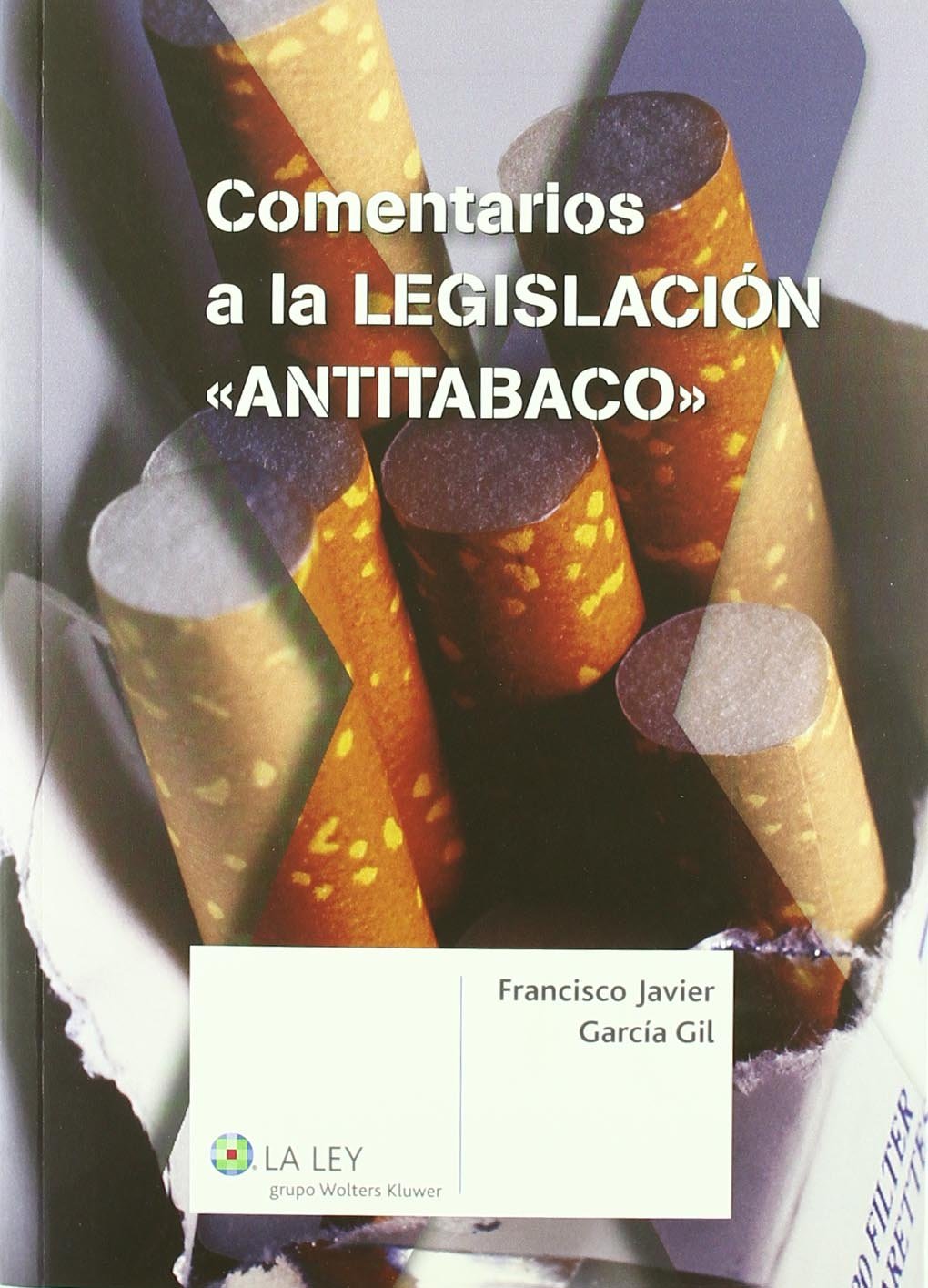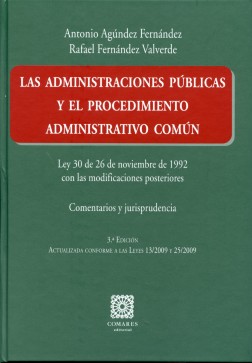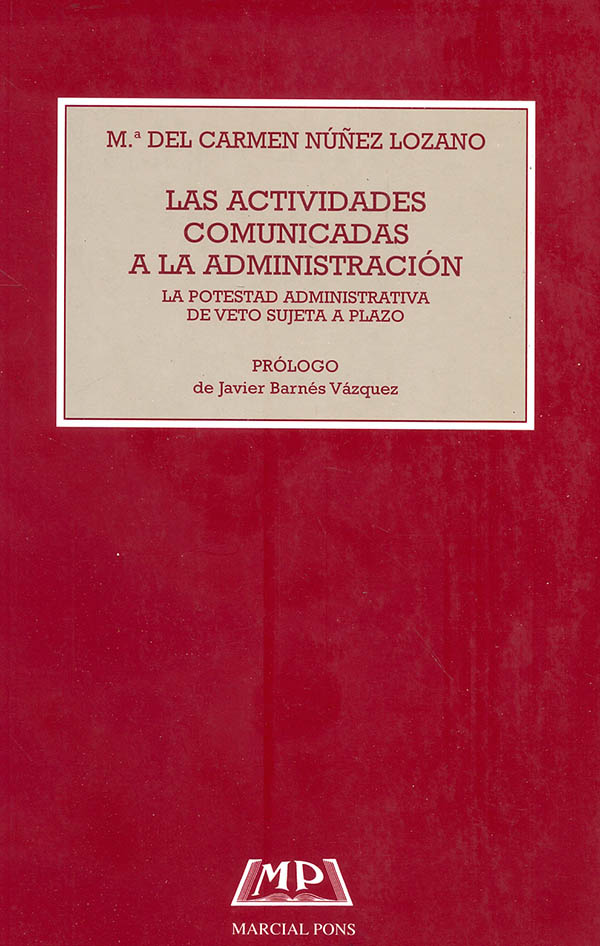Intellectual property in agriculture
This book is the first collective publication bringing together the results of the research activity carried out by the members of the international network «Intellectual Property in Agriculture» (https://ipagri.uib.eu/). The network is committed to cross-cutting and comprehensive research approaches to intellectual property and competition law in the agri-food and biotech sectors, and this book attempts to move in that direction, by addressing a limited but diverse number of relevant topics in those fields. It focuses mainly on two typically agricultural intellectual property rights, plant breeders’ rights and geographical indications, in connection with a number of diverse issues, such as organic farming and the new notion of “organic variety suitable for organic production” from art. 3(19) of Regulation (EU) 2018/848, the evolution of the UPOV system, Opinion 0003/19 of 14 May 2020 of the EBA of the EPO, the state of play in the EU with the regulation of GM crops, the new framework set by the “European Green Deal”, or innovation within the GIs’ paradigm through plant breeding. The book is particularly addressed to policy-makers, lawyers, technical experts, and, in general, anyone with an interest in life sciences and law in those fields.
Juan Antonio Vives-Vallés is Profesor contratado doctor interino at the Department of Private Law of the University of the Balearic Islands, and researcher at the Department of Agrifood Production and Protection of the Agri-Environmental and Water Economics Institute (Palma, Spain). He graduated in Agricultural Engineering [Spanish Dipl.] and in Law [Spanish Lic.] at the University of the Balearic Islands (Palma, Spain); also earning a M. Ag. [Spanish Lic.] from the ETSEA (Lleida, Spain), a M. Sc. from the IREC (Ciudad Real, Spain), an Executive MBA from IE Business School (Madrid, Spain), and an LL. M. in Intellectual Property and Competition Law from the MIPLC (Munich, Germany). He also received training in Intellectual Property, and in plant variety rights, by: KIPO-WIPO-KAIST-KIPA, UPOV, WIPO, Wageningen University & Research – Naktuinbouw (the Netherlands Inspection Service for Horticulture), etc. As a researcher, he specialized on cross-cutting research between agronomy/live sciences and law, a field on which he developed his predoc studies, earning PhD degrees in Law and in Plant Biology from the UIB, and on which he has built his postdoc research career so far, mainly focusing on Intellectual Property in agriculture and other related topics. He has been guest researcher and scholarship holder at the Max Planck Institute for Innovation and Competition (Munich, Germany) for over two years, between 2016 and 2018; trainee at the Community Plant Variety Office (Angers, France) during twelve months between 2018 and 2020; grantee at the Department of Plant Breeding of the Swedish University of Agricultural Sciences (Alnarp, Sweden), under the STSM programme of the EU COST Action CA18111 for one month in 2020; guest researcher at Naktuinbouw (Roelofarendsveen, The Netherlands) for three months in 2021; and research visitor at the Community Plant Variety Office (Angers, France) for over three months in 2022, funded by the OECD Co-operative Research Programme: Sustainable Agricultural and Food Systems (CRP) 2022 Fellowships. He has also been guest associate editor within the section of Plant Breeding in Frontiers in Plant Science. He promoted the creation, and also coordinates, the international research network “Intellectual Property in Agriculture”, formed by the University of the Balearic Islands (Palma, Spain), the University of Alicante (Alicante, Spain), the Consiglio Nazionale delle Ricerche – Istituto di Ricerca su Innovazione e Servizi per lo Sviluppo (Naples, Italy), the Faculty of Law and Administration of the Adam Mickiewicz University (Poznan, Poland), the Institute of Law Studies of the Polish Academy of Sciences (Warsaw, Poland), the Dept. of Plant Breeding of the Swedish University of Agricultural Sciences (Alnarp, Sweden), the Faculty of Law of the Universidad de los Andes (Bogotá, Colombia), and the Agri-Environmental and Water Economics Institute (Palma, Spain). He is also cofounder and director of the Laboratory for Innovation in Agriculture of the University of the Balearic Islands. In early 2019 he was appointed member of the Legal Expert Group of the European Observatory of the European Union Intellectual Property Office (Alicante, Spain). And he is Principal Investigator of the PVP-DT Project – “The Spanish and the Community plant variety protection systems in the age of digital transformation, challenges, and opportunities” (TED2021-129992A-I00), funded by the Spanish Ministry of Science and Innovation.
Natale Rampazzo is Researcher at CNR since 2001 (Senior Researcher since 2010 at the Institute for International Legal Studies). 2014 he began to work at the Institute for Research on Innovation and Services for Development (CNR-IRISS), where he is currently also Member of the Council. He graduated in Law at the University of Naples Federico II, attended a short master in commercial law at the LUISS University in Rome, obtained the title of Magister Legum (LL. M.) in German law at the Ludwig-Maximilians-Universität München and a doctorate in History of administrative organization at the University of Salerno. He was Director (2003-2013) of the Center of Studies on Human Rights based at the University of Naples/CNR. He has spent several research stays abroad (mainly in Germany and Spain). His research interests focus on the legal and economic analysis of the protection and exploitation of intellectual property, as well as the regulation of technical and technological innovations and their impact on society and culture. He is qualified in Italy as full professor in the scientific area 12/H1. Lawyer since 1999. Freelance journalist since 2009. He has been speaker at various conferences and wrote numerous articles and books on innovation law, intellectual property, legal history and international law.
Jakub Kępiński works as a Professor at Adam Mickiewicz Univeristy in Poznan, Poland. In his scientific research he focuses on Intellectual Property Law, in particular on copyright, design and unfair competition law. He is the author of two monographs. The first is about protection of designs (2009) and the second one focuses on unfair competition law (2019). He is also a co-author of the commentaries on Polish Unfair Competition Law, Polish Copyright Law and on Polish Civil Law. He is also an author of several chapters in monographies and more than 30 articles on IP Law. He was studying as an Erasmus student in Bamberg, Germany and in the Hague, Netherlands. In 2010 he was granted a Master Degree of Laws (LL. M) in International Business Law at Central European University in Budapest. He teaches Polish and foreign students. He lectured on IP Law abroad [Russia (2012), Spain (2012, 2018, 2021, 2022), Greece (2013), Finland (2014, 2015) and Cyprus (2017)]. He also takes active part in many scientific conferences in Poland and abroad. Since 2008 he works as an Attoreny-at-Law (pl. Radca prawny) in Poznań. He also works as an arbitrator of the Arbitration Court for Internet Domains at the Polish Chamber of Information Technology and Telecommunications in Warsaw. He also settles disputes as an arbitrator of the Court of Arbitration at the Association of Engineers, Advisers and Experts in Warsaw and of the Court of Arbitration at the Polish Chamber of Commerce in Warsaw.
Anselmo María Martínez Cañellas is Profesor Titular de Universidad of Commercial Law at the University of the Balearic Islands (UIB). He has been Director of the Department of Private Law of the UIB. Doctor in Law, with honours (UIB, 2001). Degree in Law with extraordinary prize (UIB, 1990). Diploma in Business Sciences (UIB, 1989). Visiting Professor at the University of Havana, and Carlos III University of Madrid. Visiting researcher at the Universities of Göttingen, Geneva, Harvard, Columbia (NYC) and the Institute of Advanced Legal Studies in London. Visiting Professor or Lecturer at the Universities of Valencia, Carlos III, Politécnica de Valencia, Deusto, Geneva, Vienna, La Habana, Antioquía (Colombia), Harvard, Columbia Law School, Swiss Institute of Comparative Law, Panamericana (Guadalajara-México), Aalborg, and at the Chamber of Commerce of Bogotá. Author of three books about International Sale of Goods and Insurace Law. Co-director of the book Principios de Derecho contractual europeo y Principios de UNIDROIT sobre contratos comerciales internacionales (Dykinson, 2009). Contributor to Group VII (on commercial sales) of the Spaish Draft of Commercial Code of 2013. Author of more than 50 articles in national and international journals and parts of books on company law, banking law, national and international contract law, competition law, bankruptcy law, international arbitration, industrial property law, sports law, tourism law and food law. Member of the Editorial Committee of the journals La Ley Mercantil, Revista de Derecho, Empresa y Sociedad, and Revista de Derecho concursal y paraconcursal. Principal Investigator and Researcher in national and international research projects on Law Teaching, Food Law, International Commercial Law, Sports Law and Bankruptcy Law.
Tomasz Zimny works as an assistant professor at the Department of Polish and European Industrial Property Law of the Institute of Law Studies, Polish Academy of Sciences. He holds a PhD in Law, as well as MAs in Law and in Philosophy, and an advanced certificate in medical bioethics. In his research he focuses on the phenomena and processes that emerge at the intersection of normative systems and life sciences. Dr Zimny is an author or co-author of over 25 academic publications mostly on the protection of biotechnological inventions, the regulation of academic research in the field of biotechnology and on bioethics, including part of a commentary on the Polish industrial property law. He teaches intellectual property law to Polish and international students at the Warsaw University of Technology, he also taught environmental bioethics and conflict of interest management in the Union College Advanced Course in Bioethics Programme for Central and Eastern Europe. Tomasz Zimny worked as a researcher at several academic institutions, including ENEA, Casaccia, Italy (Precautionary principle in large critical infrastructures), Swedish University of Agricultural Sciences, Alnarp, Sweden (postdoctoral researcher in policies and regulations for plant breeding), University of Balearic Islands, Palma de Mallorca, Spain (Transformations of patent law with regard to patent protection of plants). He also headed several research projects devoted to the analysis of regulations regarding patent law and biotechnology. Tomasz Zimny is also an attorney (Advocate), working in the field of intellectual property law, civil law and the transfer of technology between the academic sector and the industry, and is a member of the Committee of Biotechnology of the Polish Academy of Sciences.
Leire Escajedo San-Epifanio is Professor of Constitutional Law, and Law and Ethics in the Biosciences. Bachelor of Laws (Univ. Deusto), Doctor of Laws (Univ. of the Basque Country) and Doctor of Biological Sciences (Dept. Biotechnology, University of Alicante). Expert on the governance and the ethical-social and legal aspects of scientific and technological advances (at local, state, European and international levels), with special attention to Biomedicine, Biotechnology and ICT, as well as the confluences among them. Among other, she is currently partner of the Pro-GRACE project (Horizon-Ria-INFRA-2022, PR. G. Giuliano) and MC for Spain at the COST ACTION 18111 PlantED – Genome Editing in Plants (PR D. Eriksson). Principal researcher of VegEquity Project – Plant Breeding and European Integration (PID2021-123796OB-C21 DER, Ministry of Science and Innovation, Spain) and Food Equity Project – Solving Food Labyrinths (US 21/22, UPV/EHU). Member of the Commission created to analyze the legislative framework of Genomic Editing Techniques (2021-2022) at COSCE (Confederation of Scientific Societies of Spain) and co-author of the “COSCE Report for the revision of the Regulatory framework of Genomic Editing Techniques“.
Zulay Poggi has a PhD in Development Sciences (CENDES), a Master in Technological Innovation (Central of Venezuela University), and a Bachelor of Biology. She is a researcher at the Center for Development Studies and Coordinator of the Master of Technological Innovation (CENDES), and professor of the Master in Intellectual Property (Monte Avila University). Her area of research has a focus on innovation, access to genetic resources and traditional knowledge, and geographical indications of agricultural products. She is an advisor to cocoa and coffee producers in the area of geographical indications. She has been consultant at the United Nations Development Programme (UNDP) in Dominican Republic, Honduras and Panama as well as Amazon Cooperation Treaty Organization (ACTO) and Deutsche Gesellschaft für Internationale Zusammenarbeit GmbH (GIZ). She has been guest researcher at the Max Planck Institute for Innovation and Competition in Munich and participated as a guest researcher in the PHD program of the World Trade Organization (WTO) in Geneva. She is an external expert of the European Education and Culture Executive Agency (EACEA) to assist in the evaluation of projects in the Erasmus+ Programme, “Capacity Building in Higher Education” (CBHE). She is evaluator of innovation projects financed by Ecuadorian Corporation for Research Development (CEDIA) and the Organization of Ibero-American States (OEI). She has been Director of Geographical Indications at Sapi Venezuela and director of Research at the Gran Mariscal of Ayacucho University.

